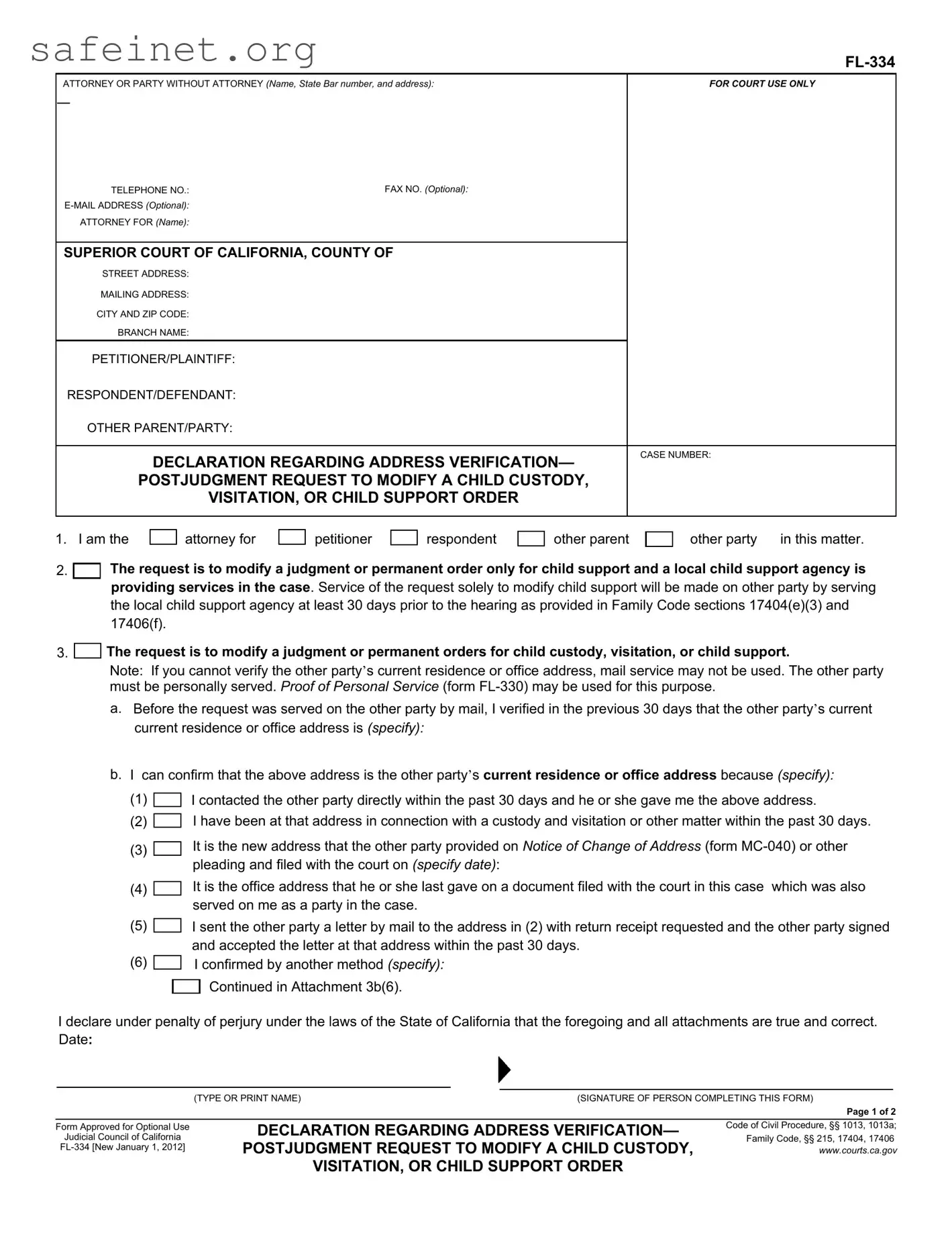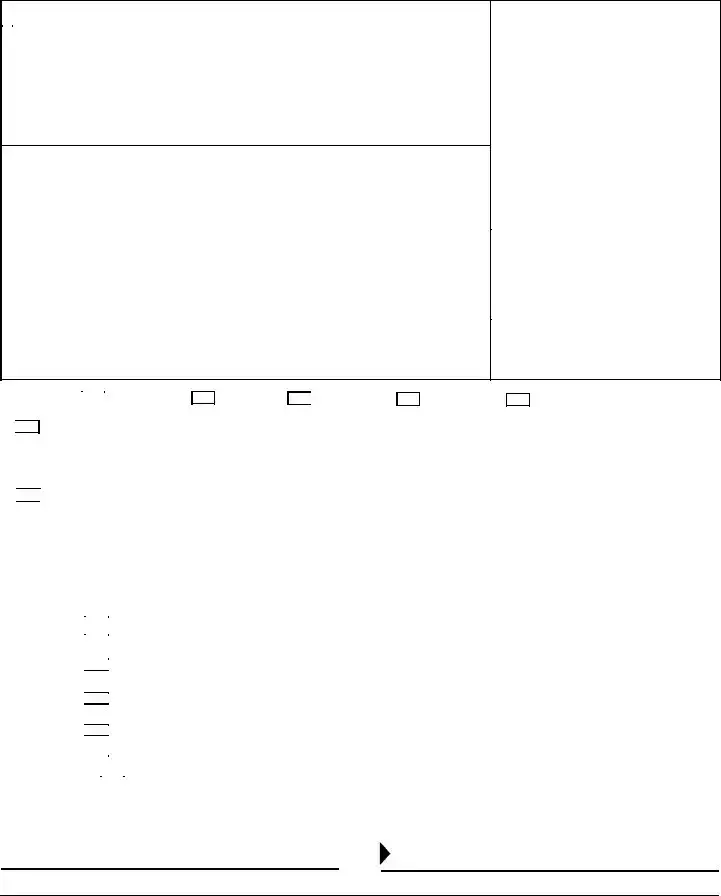What is the FL 334 form used for?
The FL 334 form is used in California for post-judgment requests to modify child custody, visitation, or child support orders. This form is crucial during legal proceedings when there is a need to change existing court orders regarding these matters.
Who can file the FL 334 form?
The form can be filed by an attorney or a party representing themselves in court. The individual must be involved in the case either as a petitioner, respondent, or another relevant party. It is important for the individual filing the form to specify their connection to the case clearly.
What information do I need to provide on the FL 334 form?
You are required to provide personal information, such as your name, contact details, and legal representation, if applicable. Additionally, you must include the current address of the other party involved in the case and explain how that address was verified within the last 30 days.
Is personal service required for the FL 334 form?
Yes, personal service is generally required. If you cannot verify the other party's current address, you must serve them personally. If the request is solely for child support modifications and the local child support agency is involved, mailing may be permitted under specific conditions.
What is the verification process for the other party's address?
The verification process requires you to confirm the other party's address within the 30 days preceding the filing of the FL 334. You must specify how you obtained this information. The verification options include direct contact, recent visits to the address, or confirmation through previously filed court documents.
What should I do if I cannot verify the other party's address?
If you are unable to verify the other party's current address, you cannot use mail service. Instead, you must arrange for personal service. You may use the Proof of Personal Service form (FL-330) to document this action.
Are there deadlines for filing the FL 334 form?
It is essential to file the FL 334 form with the court clerk's office and serve the other party at least 30 days before the hearing. Meeting this timeline helps ensure the legal process proceeds without unnecessary delays.
What happens after I file the FL 334 form?
After filing the FL 334 form, you must ensure that the other party is served with the request in compliance with the relevant procedures. Following proper service, the court will schedule a hearing based on the request's content.
Can I modify child support without involving a local child support agency?
Yes, you can modify child support without involving a local child support agency. However, you must follow the required procedures, which typically include personal service if the request involves modification of matters beyond child support, like custody or visitation.



 respondent
respondent




 The request is to modify a judgment or permanent orders for child custody, visitation, or child support.
The request is to modify a judgment or permanent orders for child custody, visitation, or child support. It is the new address that the other party provided on
It is the new address that the other party provided on 


 It is the office address that he or she last gave on a document filed with the court in this case which was also served on me as a party in the case.
It is the office address that he or she last gave on a document filed with the court in this case which was also served on me as a party in the case.


 I sent the other party a letter by mail to the address in (2) with return receipt requested and the other party signed and accepted the letter at that address within the past 30 days.
I sent the other party a letter by mail to the address in (2) with return receipt requested and the other party signed and accepted the letter at that address within the past 30 days.